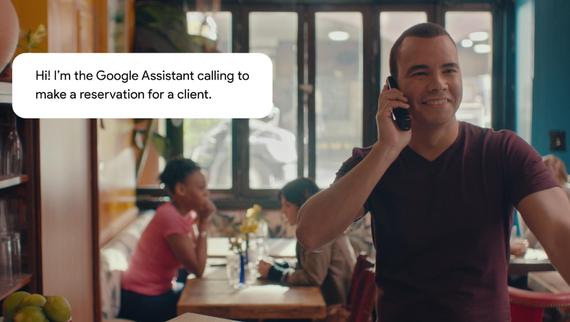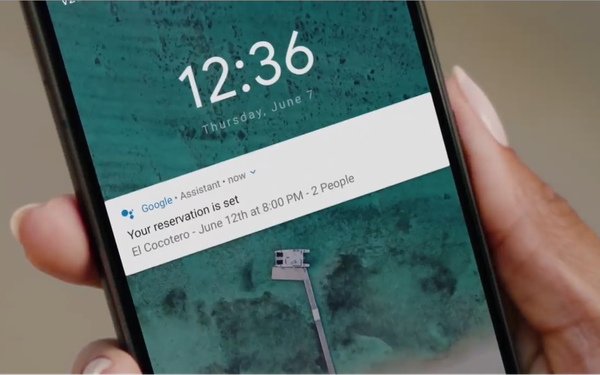
By RTN Staff - 5.5.2019
“Hey Google, book a table for 4 at Althea on Saturday at 8.”
Making a restaurant reservation has never been easier, thanks to artificial intelligence that now does the job for you. This week, Google announced that restaurant-goers in 43 states will soon be able use Google Assistant for the task. The new service uses AI capabilities powered by Google Duplex, which was introduced last year, to call any restaurant and make a reservation as requested.
Google announced that it has also rolled out the service to non-Pixel devices and iOS devices that have Google Assistant installed.
With Google Duplex, users can ask Google Assistant to make a reservation without having to look up a phone number, pick up a receiver, or talk to anyone. Duplex does all the work, talking to the restaurant staffer in a scary-accurate conversational manner. The voice sounds so real that it would be hard to know that it is a machine and not an a living, breathing person on the other end.
Until now, the restaurant reservation service was available only in New York City and San Francisco, and only on Pixel devices. Expanding the service to 43 US States, and moving beyond Pixel handsets, means it will soon be available to the masses. The iPhone is included as part of the rollout, with Android phones requiring only Android 5.0 or higher to use the service.

The process of making a reservation could not be easier. A person simply tells the app when and where they want to eat and how many people are in their party. Google Duplex manages the rest, looking up the phone number, making the call, conveying the reservation details to the staffer on the other end of the line and confirming the reservation. It sends an alert to the person’s smartphone or other device once the reservation is set.
Duplex was built by analyzing recorded calls between humans, and it does a remarkable job of replicating natural human speech. It even throws an the occasional “umm” or other verbal tic at just the right lull to help the conversation flow naturally.
The service is capable of completing its task even if a call doesn’t go exactly as planned. It can hold if the restaurant staffer on the other end of the line needs to check something. It can repeat the reservation date or any other piece of information if the staffer didn’t catch it the first time.
Following concerns over possible ethics issues, the service discloses to the restaurant staffer answering the call that it is an AI-enabled machine and not a real human.
The service will call a restaurant and speak to a staffer only if an online reservations system is not available for that restaurant. All calls are recorded to assure quality — and, no doubt, to capture data that might be put to any number of uses in the future.
Restaurants should have every reason to like this new service, especially given that reservations are made electronically using the restaurant’s booking platform, if available, as a first course of action. Voice calls are clear and concise, without the risk of the conversation meandering off into tangents. This should save time and increase efficiency, as is generally the case whenever machines replace humans.

